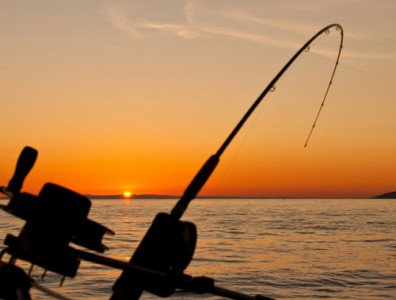Net-zero shipping framework decisions imminent
Global moves to reduce greenhouse gas (GHG) emissions from shipping could make New Zealand “an expensive place to send ships” and add to the cost of both imports and exports, an expert is warning.
New Zealand’s freight sector will be closely watching April’s 83rd session of the Marine Environment Protection Committee (MEPC 83) for confirmation of global measures aimed at further reducing GHG emissions from shipping.
Development of the midterm measures progressed at MEPC 82, held at the London headquarters of the International Maritime Organisation (IMO). Preceded by a dedicated working group, the session delivered draft legal text on possible amendments to Annex VI of the International Convention for the Prevention of Pollution from Ships (MARPOL).
The proposals include a goal-based marine fuel standard to phase in the mandatory use of fuels with less GHG intensity and a global maritime GHG emissions pricing mechanism. They are aimed at driving the international shipping industry’s transition to net-zero GHG emissions by about 2050, as per the IMO’s 2023 GHG Strategy adopted at MEPC 80.
Cost concern
New Zealand Council of Cargo Owners (NZCCO) chair Mike Knowles said a major local concern was that agreed measures could contribute to making New Zealand an “expensive place to send ships”.
“We need to be aware that we are a trading nation probably the farthest from the markets of any exporter in the world,” he said.
“Going green is not going to be cheap. Costs will go up and, ultimately, that has to be passed on to consumers.”
Knowles agreed with the general thrust of a ten-point statement on aspirations for the measures released jointly by seven shipping organisations on September 20 – particularly the need to avoid “unintended consequences”.
“We have a European emissions trading scheme (ETS) that is up and running and the United States is supposedly not too far behind, so we need to be sure that we don’t end up getting a double whammy – paying a levy on the emissions and then to ETS when entering a particular market.”
While predicting the cost of adopting green fuels would reduce as production ramped up and other factors came into play over, potentially, a 10-year period, he nonetheless emphasised the New Zealand supply chain also needed to “get our house in order”.
“A couple of our ports are well-performing, but some others are basket cases. So, instead of a ship taking eight or nine days on the coast they are taking 14 or 15 days.
“That means putting more ships in if they are available and as we’ve seen with the Mediterranean Shipping Company, they’ve pulled five ships out recently because they can make more money somewhere else.
“We need to control or do better with the supply chain that we can control, which is the ports and the infrastructure feeding into them so we are an efficient country and attractive for shipping companies to deploy to – because the green ships will be bigger ships.”
Time for agreement
Praising MEPC 82 for its “spirit of compromise and commitment”, IMO secretary-general Arsenio Dominguez highlighted the need for amendments to be finalised at MEPC 83 ahead of formal adoption in October and enforcement by mid-2027.
“I am sure you will reach that midpoint where we can continue to show that when we set goals, we achieve them,” he told delegates.
“If not, I am closing the doors next year and we will have to stay here until we do agree – but I am sure it will not get to that.”
The 6PAC+ coalition of Pacific and Caribbean small-island developing states lobbied the session for implementation of a US$150 levy per tonne of emissions from shipping and greater recognition of the disproportionate impacts of climate change on Pacific Island nations. It subsequently reported “several small wins” alongside “significant setbacks”.
“The failure to secure immediate consensus on a universal carbon levy represents a major challenge,” it stated.
“While the topic remains on the table, the lack of decisive action at MEPC 82 means that critical time is being lost as climate impacts worsen.
“The group’s inability to agree on specific targets and reduction values for the mid-term GHG measures also signals that the global maritime community has yet to fully embrace the level of urgency needed to combat the climate crisis.”
“I’ve talked to shipping companies and they think that having a global system with a levy per tonne of emissions is the simplest and easiest way to go,” said Knowles. “They are saying the Carbon Intensity Indicator (CII) isn’t working because everyone has exemptions and it isn’t very fair across the board. But if there is a global levy per tonne of emissions, then everyone pays and it’s just a matter of setting the right levy.”
Wellington-based Chapman Tripp partner Nicola Swan, who leads her firm’s international law practice, noted that as an exporting nation, New Zealand is “particularly incentivised” to be “part of the solution” on global shipping emissions.
“Increasingly our export-facing businesses are required to report on their GHG emissions, including supply chain (scope 3) emissions such as those from international transport, and some international customers are starting to set expectations that scope 3 emissions will be reduced,” she said.
“Also relevant is the current consideration of whether international shipping emissions will be included in New Zealand's domestic climate change targets – if included, shipping emissions would make up around nine per cent of our national inventory. The Climate Change Commission is due to advise the Government on this by December 31.”
Swan noted that, alongside the IMO process, complementary alternative initiatives were being progressed, such as the establishment of green shipping corridors.
“For example, Zespri in September 2024 released a feasibility study into a green shipping corridor between the Port of Tauranga and Zeebrugge in Belgium.”
A Ministry of Transport spokesperson confirmed New Zealand’s support for the IMO’s GHG strategy and “any subsequent measures to operationalise the strategy that align with the Government’s Climate Change Strategy”.
The spokesperson also clarified that even should any nations choose not to ratify the ultimately-agreed amendments to MARPOL Annex VI, ships sailing into the waters of party states would nonetheless be subject to those obligations.
“This means that, outside specialist ships expected to operate exclusively on a route, all ships need to achieve the obligations of IMO conventions to be able to trade.”
Iain MacIntyre is a freelance journalist



